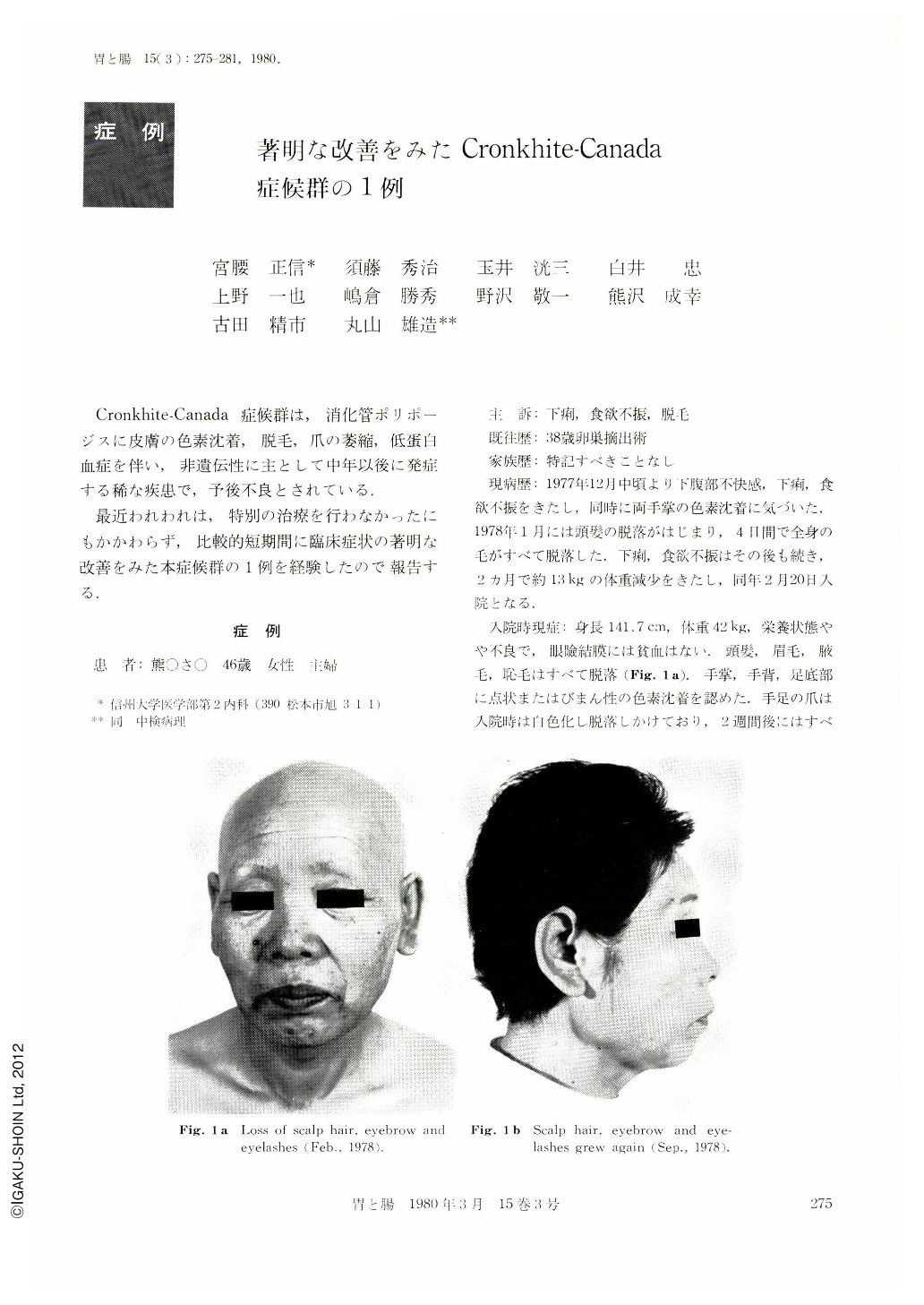Japanese
English
- 有料閲覧
- Abstract 文献概要
- 1ページ目 Look Inside
Cronkhite-Canada症候群は,消化管ポリボージスに皮膚の色素沈着,脱毛,爪の萎縮,低蛋白血症を伴い,非遺伝性に主として中年以後に発症する稀な疾患で,予後不良とされている.
最近われわれは,特別の治療を行わなかったにもかかわらず,比較的短期間に臨床症状の著明な改善をみた本症候群の1例を経験したので報告する.
A 46 years old woman had been well until the middle of December 1977 when she developed diarrhea, poor appetite, hyperpigmentation of the extremities, alopecia and weight loss of about 13kg and was admitted to our clinics.
Roentgenographic and endoscopic examinations of her GI tract revealed diffuse polyposis throughout the stomach. colon and rectum, and a few small polyps in the small intestine. These polyps were remarkably reddish. Microscopic examination of polyps biopsied showed a cystic dilatation of glands, enlarged stroma with numerous capillaries and the infiltrations of a few mononuclear cells.
Soon after admission, her nails were lost completely, and the laboratory investigation revealed marked anemia (Hb 8.4g/dl) and hypoproteinemia (TP 3.8g/dl). One month after admission, however, her hair began to regrow without any specific therapies. And eventually in eight months after the onset of symptoms, her hair and nails returned to normal, and pigmentation faded out completely. These improvements of ectodermal changes were followed with the decrease of the reddness and the number of polyps and also with the complete disappearance of the polyps in eight months in the stomach and in one year in the colon after the onset of symptoms.
The etiological relationships between the ectodermal changes and the inflammatory polyposis of the GI tract in Cronkhite-Canadai's syndrome are reviewed and discussed.

Copyright © 1980, Igaku-Shoin Ltd. All rights reserved.


